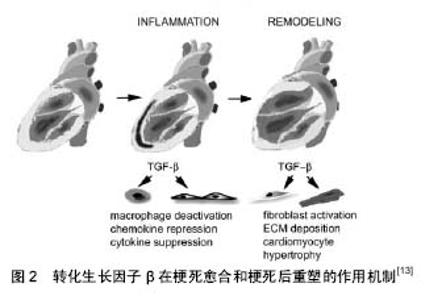| [1] 刘镕,赵琴平,董惠芬,等. TGF-β信号传导通路及其生物学功能[J].中国病原生物学杂志, 2014,9(1):77-83.
[2] Smith CA, Stauber F, Waters C, et al.Transforming growth factor-beta following skeletal muscle strain injury in rats.J Appl Physiol.2007;102(2): 755-761.
[3] 罗丽,张健,董宇,等.大鼠骨骼肌纤维化形成过程中IGF-1, TGF-β1的表达[J].体育科学, 2011,3111):61-70.
[4] 张海啸,史载祥,贾海忠,等.大蒜素通过部分阻抑TGF-B1介导的Smads信号改善压力超负荷大鼠心肌反应性纤维化[J].中国中西医结合杂志, 2012,32(5): 666-670.
[5] Acharjee S, Chung TK, Gopinadhan S, et al. Sharp-1 regulates TGF-beta signaling and skeletal muscle regeneration. J Cell Sci.2014;127(Pt 3): 599-608.
[6] Nowak R, Kwiecien M, Tkacz M, et al.Transforming growth factor-beta (TGF- beta) signaling in paravertebral muscles in juvenile and adolescent idiopathic scoliosis. Biomed Res Int.2014;2014:594287.
[7] Jeong J,Conboy MJ,Conboy IM.Pharmacological inhibition of myostatin/TGF-beta receptor/pSmad3 signaling rescues muscle regenerative responses in mouse model of type 1 diabetes. Acta Pharmacol Sin. 2013;34(8): 1052-1060.
[8] 张爱军,闫志勇. TGF-β 对创伤愈合与瘢痕形成的影响及中药的干预作用[J]. 西北药学杂志, 2013,28(1): 101-105.
[9] Gumucio JP, Flood MD, Phan AC, et al. Targeted inhibition of TGF-beta results in an initial improvement but long-term deficit in force production after contraction-induced skeletal muscle injury. J Appl Physiol (1985).2013;115(4): 539-545
[10] 董丽霞,蒋小岗,李梦姣,等.黄芩素对TGF-β_1体外诱导肺成纤维细胞向肌成纤维细胞转化的影响[J].中国药理学通报, 2013,29(3): 406-412
[11] 石永英,董颀,石永华,等. TGF-β1对体外培养的大鼠心肌细胞肥大和凋亡的影响[J].中国病理生理杂志,2009, 25(4): 802-805
[12] 陈蓉,谢梅林.TGF-β/Smads 信号通路在心肌纤维化发生和治疗中应用前景的研究进展[J].中国药理学通报, 2012,28(9):1189-1192.
[13] Bujak M, Frangogiannis NG.. Frangogiannis. The role of TGF-β signaling in myocardial infarction and cardiac remodeling. Cardiovasc Res. 2007;74(2):184-195.
[14] 梁逸强,周莉,周端,等.参蛤散对心室重构大鼠TGF-β1/ Smads信号传导的影响[J].辽宁中医杂志, 2014,41(10): 2232-2236.
[15] 郭雯,马涵英,赵铁夫,等.肺动脉高压对右心重构及右心室 AT1R, TGF-β1, ERK1/2蛋白表达的实验研究[J].心肺血管病杂志,2014,33(2): 296-299.
[16] 王健,全瑛,吉健华.TGF-B1通过抑制HIF-1琢减少风湿性心脏病心肌细胞胶原合成[J].现代生物医学进展, 2014, 14(34): 6634.
[17] 陈国钦,区彩文,张稳柱,等.糖尿病心肌梗死大鼠TGF-β1 和CTGF表达变化及HGF的干预作用[J].广州医学院学报, 2013,41(2):1-4.
[18] 王世强,常芸,马晓雯,等.不同强度耐力运动对大鼠心房 TGF-β1/miR-21信号途径的影响[J].体育科学,2015, 35(11): 30-37.
[19] Nelson CA, Hunter RB, Quigley LA, et al.Inhibiting TGF-beta activity improves respiratory function in mdx mice. Am J Pathol.2011;178(6): 2611-2621.
[20] 王今越,王小虹,冯维斗.运动训练抑制了TGFβ 通路并缓解了D-半乳糖诱导衰老大鼠的肌肉流失[J].体育科学, 2014,34(10):72-77.
[21] 王今越,王小虹,冯维斗.IRS1, Akt, FOXO1在少肌症发生及其运动性缓解中的作用[J]. 成都体育学院学报, 2012, 38(7):86-91.
[22] 王今越,王小虹,冯维斗.p38, NF-κB, IL-6在少肌症发生及其运动性缓解中的作用[J].山东体育学院学报, 2012, 28(4):51-56. |

